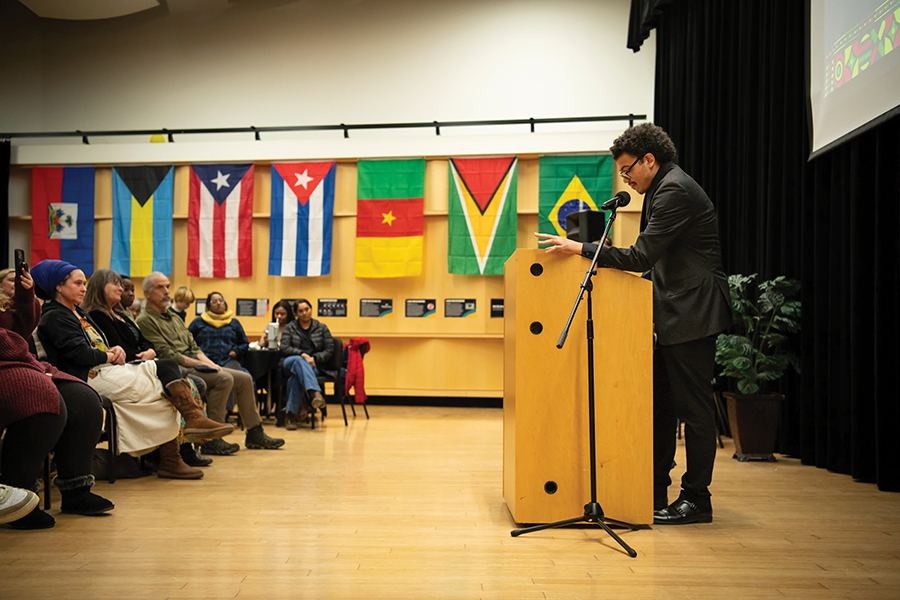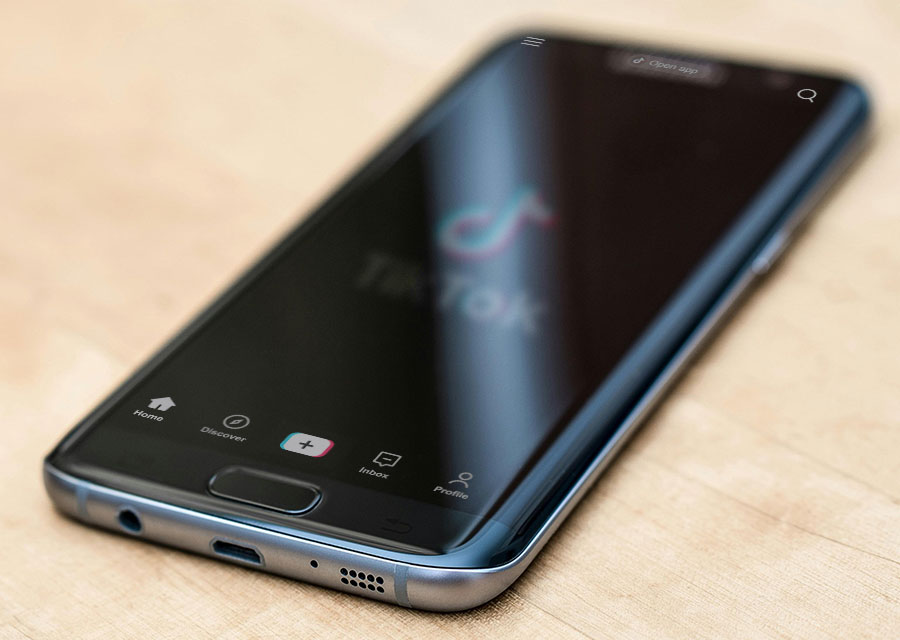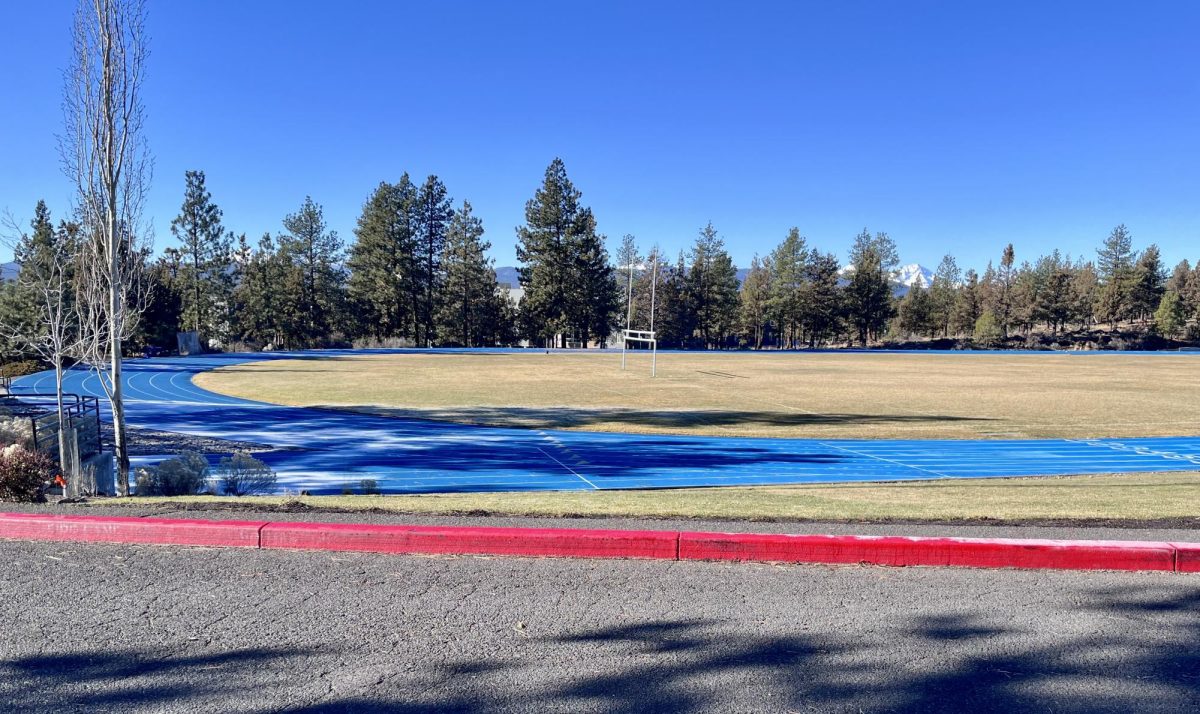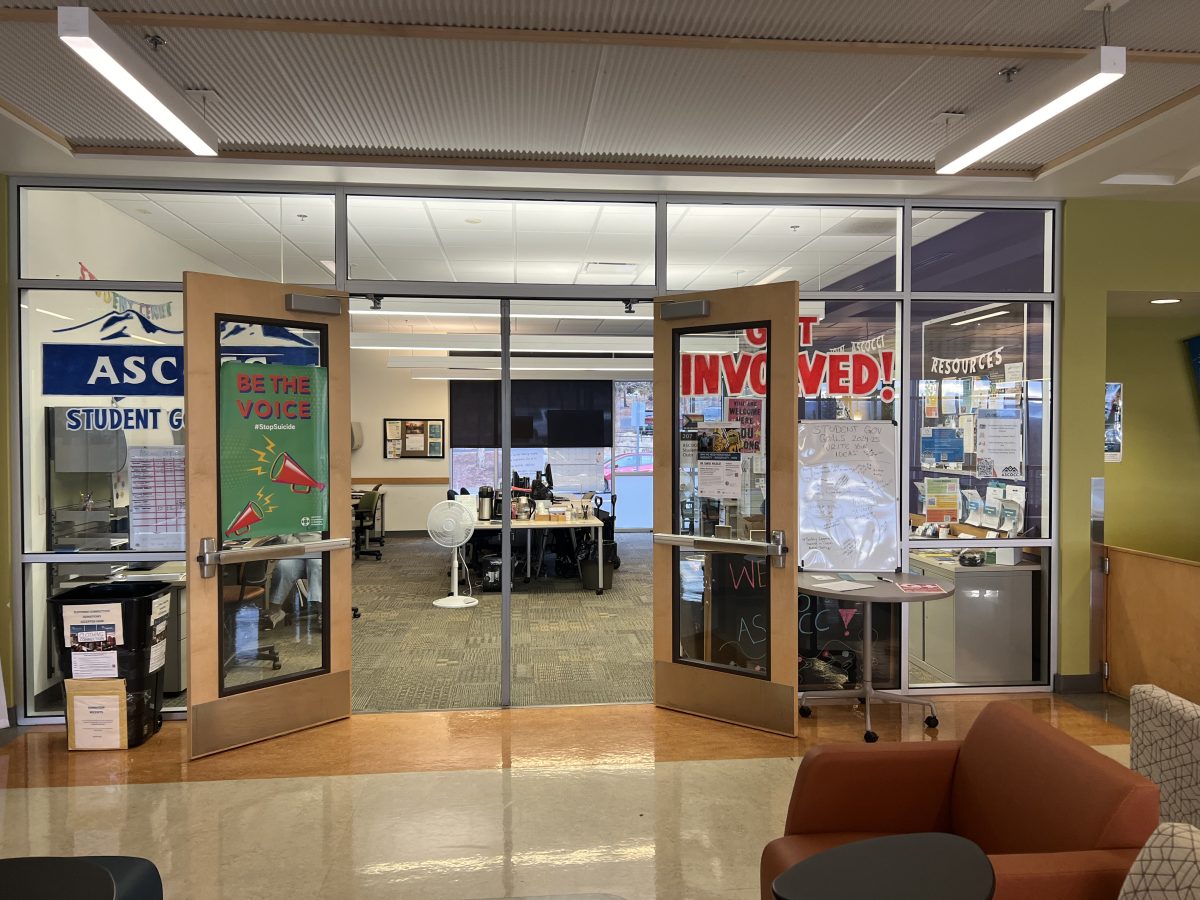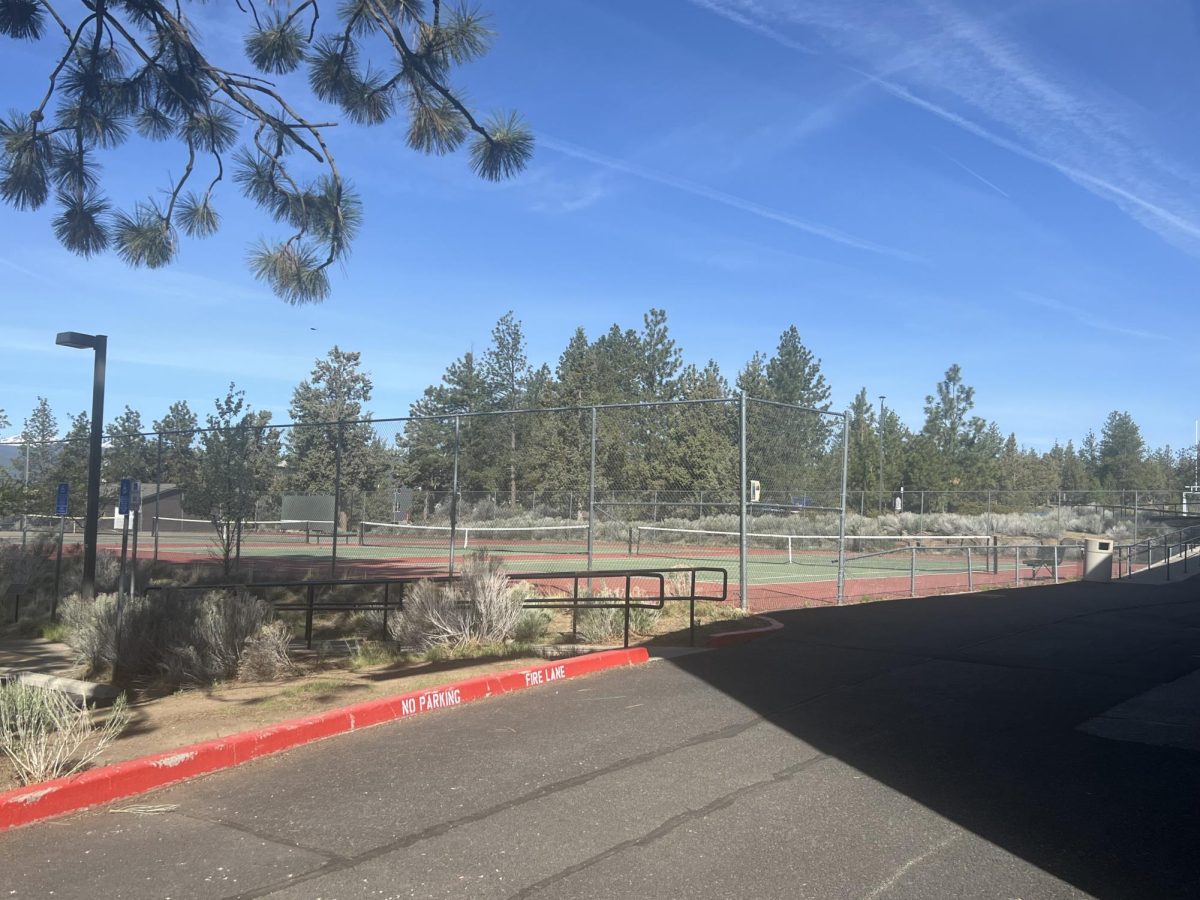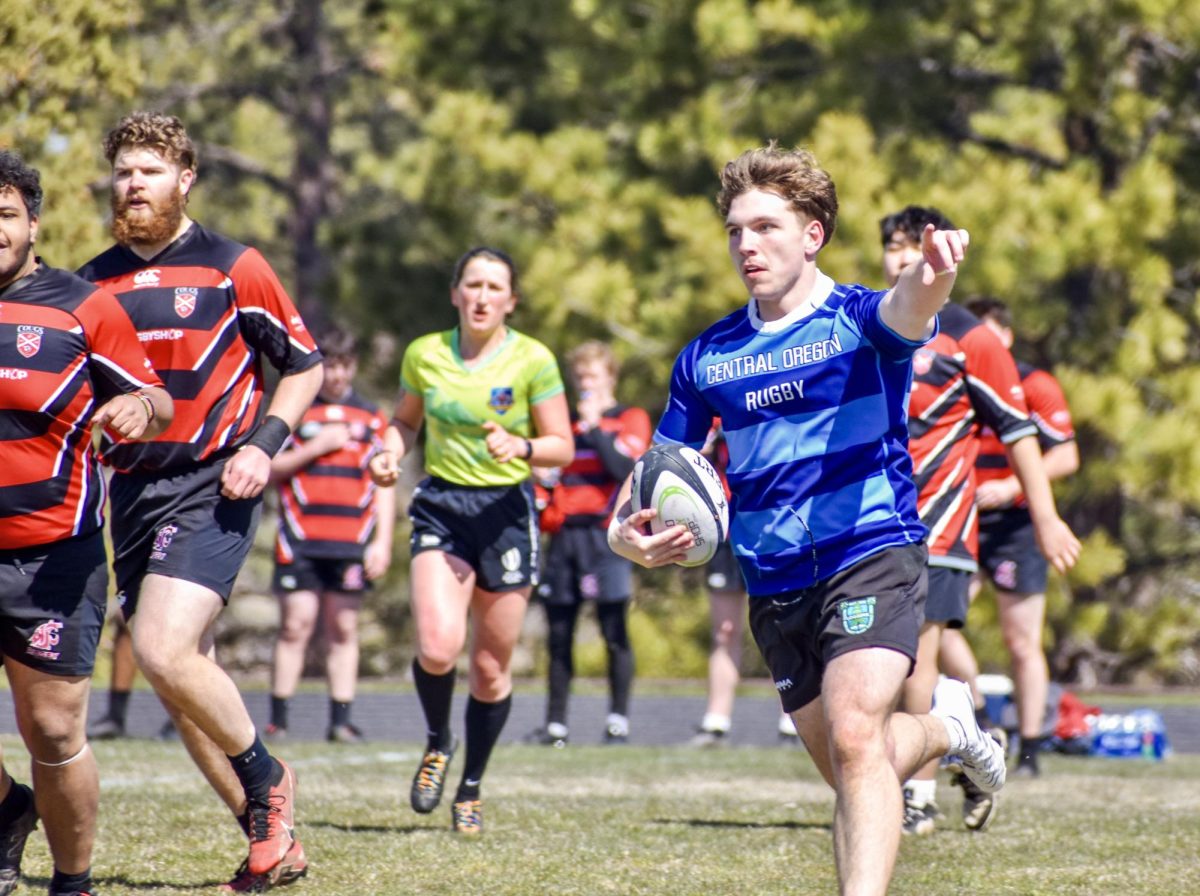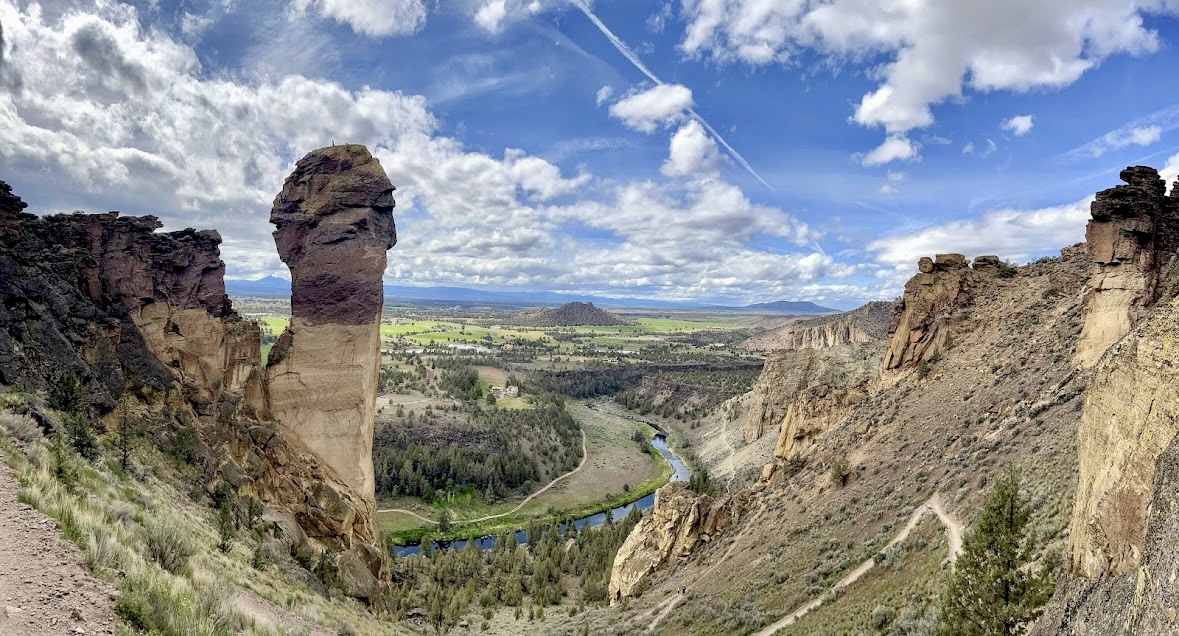I’ve always been Black but it wasn’t until I came to Central Oregon that it wasn’t a choice anymore. In Southern California, being Black is just another feature, it’s a place where race wasn’t scrutinised or thought about too much. It’s simply where I grew up.
Being Black in Central Oregon means something entirely different. It is stares and silent judgment, and store associates following you around. It’s people talking to you in a way you can never understand, nor fight back against. With this constant scrutiny comes pressure, pressure to represent both oneself and one’s race. I do this in many ways, but writing is the most important.
How do you do this, represent your race with words? By talking about the pressing issues we face, by trying to stem those preconceived notions. But it’s more complicated than that. It doesn’t just feel like a choice to take up the proverbial pen, it feels an obligation. The weight of having to talk about what matters, to represent my people. Because if I don’t, who will? This is what it means to be Black in America as a writer.
It isn’t simply me who feels this way, either. In my research of the very same question–what does it mean to a Black Writer in America–I came across others who feel my struggle. Writer, reporter, and professor Stan West details his personal experiences of being a Black writer, in his piece in “The African American Review,” “Tip-Toeing on the Tightrope: A Personal Essay on Black Writer Ambivalence.” He discusses his issues with balancing being Black and being an American, of the struggle to be authentic but palatable to white audiences. West says, “Black writers’ ambivalence is aggravated by the need to be twice as good as White writers while receiving only a third of the money and an eighth of the recognition. The tension between the two selves we battle as Black writers in a White literary world is our exigence, our source of triumph as well as defeat–our source of immense satisfaction yet also the reservoir of our angst.”
The conflict is an eternal struggle, seeming inescapable. Touched upon indirectly in his words is a type of “double consciousness.” First penned by sociologist W.E.B. DuBois, it is the struggle to be both Black and American, trying to rectify the two halves of ourselves; seemingly impossible. This is exacerbated by the expectations and impediments placed upon the Black American, of what we can or cannot write about. Arbitrary but nevertheless solid barriers. But even with all of this weariness, both Mr. West and I echo the feeling of triumph, of picking up our pens every day because it is the right thing to do–it is our fight. “I, like those before me, and those after me, are forced to traverse this tightrope called the African-American writer’s dilemma…I accept this narrative task,” West declares. A fitting ending.
Another, a former show writer and executive at NBC, Felicia Henderson, shares her experience of the Black writer’s dilemma via television. She grew up feeling disillusioned by a lack of representation on TV, without people she could empathize with or relate to; this absence inspired her to ameliorate this, working on both The Fresh Prince of Bel Air and Moesha.
“By the time I’d begun my career as a network executive at NBC in 1990, I was there to make a difference.”.
The narrative throughline of feeling purpose becomes present once again. Of responsibility. This is increasingly evident throughout the article as she expresses her distaste for previous Black sitcoms and lambasts them for not properly representing Black Americans properly.
Therein lies another issue: what exactly is “proper representation” of an entire community? It’s a slippery slope, a painfully relative idea that each of us as Black writers and producers of media struggle with.
What I represent is wholly driven by my personal desires–to show a predominantly white community that a Black man can be intelligent, can be civilized, driven, but also kind and approachable. I constantly uphold not just myself but my people as well, for better and for worse. Mr. West alluded to being a Black writer as tightrope walking but that is no less true for being Black, to constantly bear in mind what my sheer presence represents. Pressure, yet again. But Henderson’s view on representing a community is complicated, as she strives just to represent a realistic look on Black Americans. But sometimes, a reminder of reality is the last thing people want.
That’s why shows like The Cosby Show and Black-ish are noteworthy, decades apart yet they both centralize on successful, upper-middle class Black Americans. This is the central issue, that so many Black Americans are middle or working class that to show anything other than that is critiqued.
Again lies issues within issues of representation. It isn’t simply carrying the responsibility, it’s also having to satisfy both a Black and white audience; even more arduous. Trying to be cultured but inoffensive. This constant balancing act is seen in every facet of who we are. Black people may have been freed from their physical bonds nearly 160 years ago, but we have yet to be freed from these mental shackles. But it doesn’t simply stop there.
Exhibited in the film American Fiction, the main character, Thelonious, simply desires to be a fantasy writer. But there’s an issue. Those at publishing companies just want him to talk about the “struggle” or the Black experience. Black writers are never free to simply be writers, they have not only the responsibility thrust upon them but obligation forced upon them by whom that they write for. As such, Black writers remain restricted. Confined to a specific type of work they can produce. This is touched upon in Stan West’s work as well, mitigating the Black writer’s voice.
I defy you, the reader, to name one famous Black fantasy writer, one Black mystery writer, even horror. Hard to do so, right? If not impossible. This reflects a sad but true issue, one rarely addressed or even acknowledged. It may seem trivial but I assure you that, while I hesitate to say burden, this weight on my back is still weight, nearly back-breaking, at times.
I have been and always will be proud of my heritage, my music, and my history. But I’d be lying if I were to say it wasn’t exhausting, to constantly show who I am, who we are, to fight
the racism, the bias. To combat flawed if not outright abhorrent reflections of us. Representations that often only exist to sustain an agenda or reinforce white beliefs.
There’s fear to it as well. Fear of not being Black enough if I don’t talk about or write about what matters enough to make an impact. Fear of missing an opportunity to speak on what’s real, to fail in maximizing any sort of platform I’m given. Black Americans are often scared of having their platform taken away, and weidling power as a community is so frustratingly fleeting that we feel the need to do as much as possible with our platforms while we have it. Because even now our power as citizens of this country is being pushed up against by powers that be. This demand to do the most you can with what you have, compounded with the fear of having our voices taken away, is pressure from both within and from without.
This very article is a direct mirroring of that sentiment, both the want and the need to talk about something unrepresented in society, because no matter the size of the platform, people need to know. At times I wish I could just be a person. Without an asterisk, without a connotation attached to me. Yet in that same instant I regret wishing it because it’s not fair to not want to be Black, any more fair than the constant eyes and expectations placed on me. But at the end of the day, to shoulder the weight of your entire race on your back, it’s exhausting, no matter the upsides.
This sentiment became most apparent upon finishing a research paper for my writing class, of the Black Writers’ experience in America from different perspectives. It wasn’t until I’d turned it in that I saw what had driven me to write and research the damn paper in the first place, the pressure. It causes me now to beg the question, why is it that it is always those with color that are placed under a microscope? No matter where we go, what we do. Again, that pressure is both internal and external, to be Black, to be a writer, to be cultured but unproblematic. Filterable yet honest. These dual notions are almost contradictory.
But these hardships, no matter how onerous, shall never outweigh the joy of being a Black writer in America. It’s a double edged-sword, that much is true, but it is also mine to wield, my fight to fight. I will not falter nor hesitate. It is a responsibility I bear eternally, but it is also one I am proud to undertake. It always will be.



